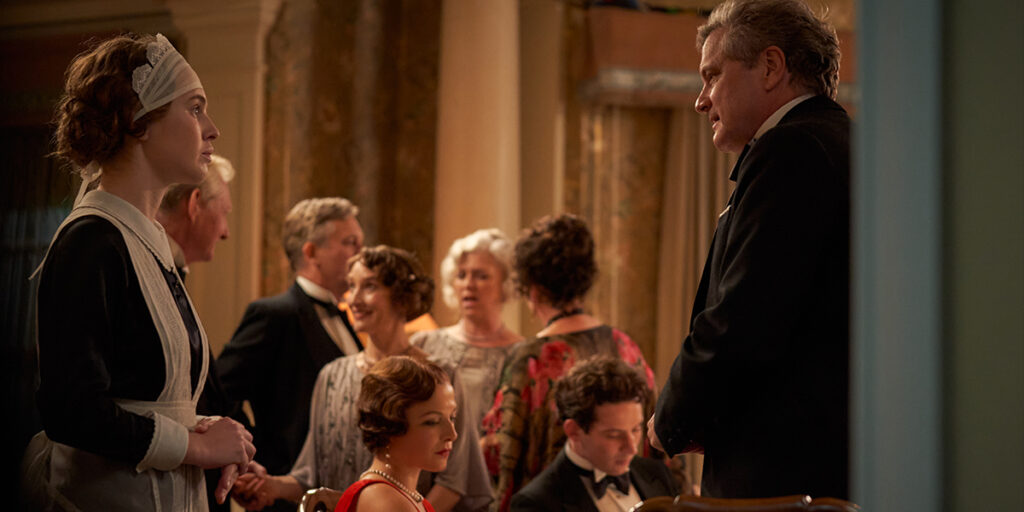TIFF Review: Mothering Sunday
Written by Ian Thomas Malone, Posted in Blog, Movie Reviews, Pop Culture
The societal changes brought upon by World War I have been thoroughly explored by literature and film. A blunter, more imminent alterration stemmed from the millions of casualties, mothers who would never see their young sons again, families who would never be whole. Time only moves forward, risking to leave behind those who don’t know how to face the reality of tomorrow without those they loved most.
Mothering Sunday spends the bulk of its narrative steeped in the grief of families who lost their sons in the Great War. Jane Fairchild (Odessa Young) works for the Nivens (Colin Firth and Olivia Colman). Abandoned at birth, Jane knows nothing of her upbringing, ambitious for a life beyond service. She finds romantic companionship in Paul (Josh O’Connor), the son of family friends of the Nivens, and the sole surviving soldier among his brothers and peers.
Director Eva Husson plays with time throughout the narrative, largely jumping between the events of a sexual rendezvous between Jane and Paul while the latter is late for his engagement party, and Jane’s subsequent career after service years later. Thrown into the mix is the reaction of the Nivens and Paul’s family to his perpetual tardiness, a glaring reminder of how absent their table will feel for the remainder of their days.
Young delivers a mesmerizing performance in the lead role, often buoying the scattershot narrative. Jane is not a particularly interesting character, consistently forced to live in reaction to the never-ending tragedies that land on her doorstep. Young brings to life the subtleties of her character’s position, a woman who wants more in a world that seemingly only knows how to take.
Of the supporting cast, only O’Connor manages to leave much of an impression. O’Connor and screenwriter Alice Birch chart a course for Paul that avoids reducing the lazy socialite to predictable stereotypes. Paul is tender, sweet, and irrevocably broken. O’Connor finds the nuance of a boy with the faint aura of a charm that’s been beaten down but never fully extinguished.
Firth and Colman are largely squandered in brief supporting roles. Colman’s scenes in particular look like they could have been filmed in a single day. Firth is given a little more room for his character, but Husson leans a little too heavily on a single scene at a garden party, frequently returning to the eternally dour Mrs. Nivens even as the frequent cutaways greatly advance the narrative elsewhere.
Husson shows off her ample skills, drawing attention to the minor pleasures of life that obviously mean so much to characters who are otherwise adrift in their own misery and boredom. Where she falters a bit is in the execution of her broader themes. Everyone is sad and Jane has lived a life full of tragedy. That same drum is pounded repeatedly throughout the 104-minute runtime, losing its impact by the third act.
Mothering Sunday is a first-rate production that lands with more of a thud than it should have. A compelling commentary on loss in need of a stronger sense of focus. Fans of Husson, Young, and O’Connor will find much to enjoy, but the film never quite shakes the feeling that it all could have been better.











